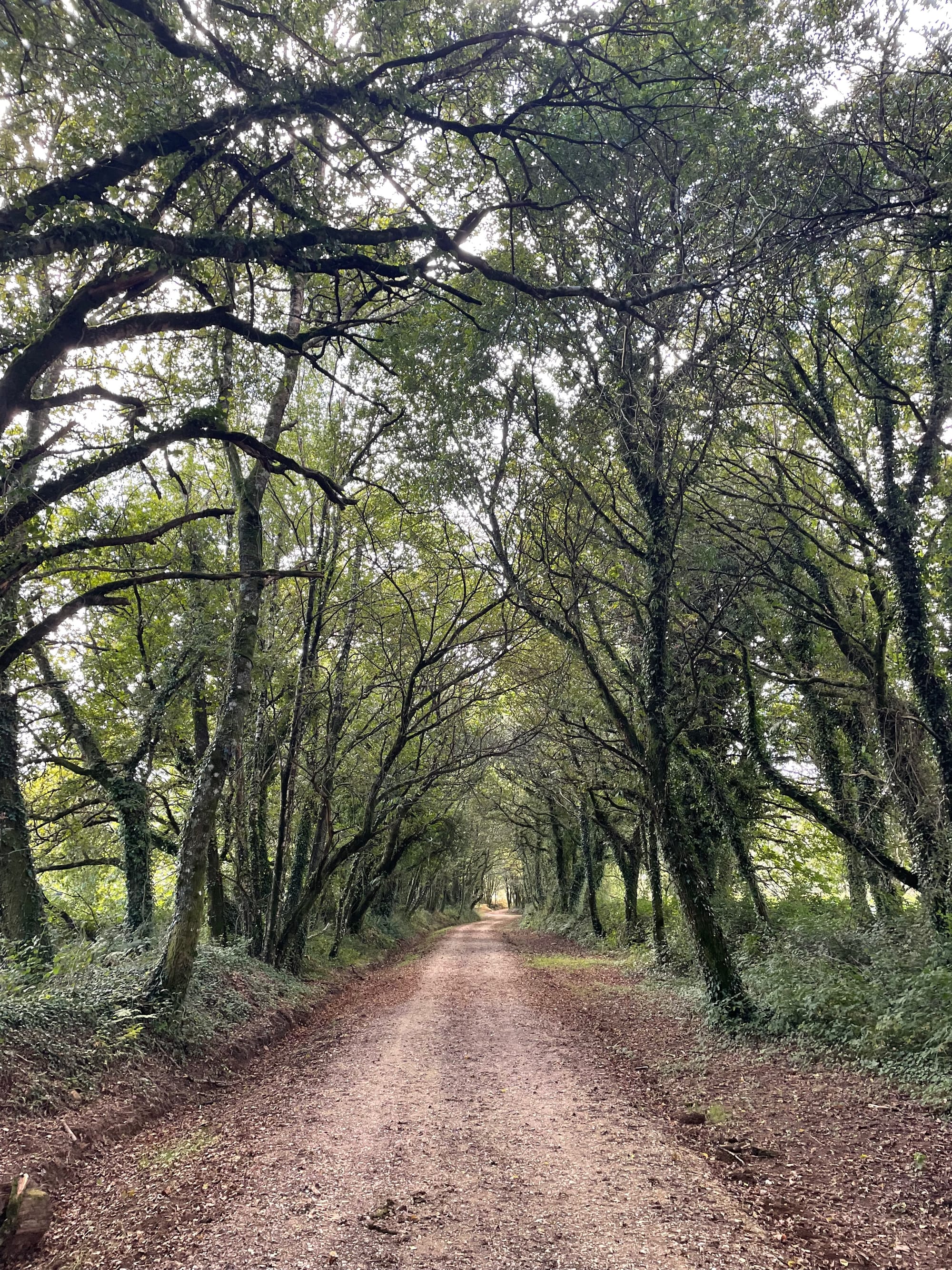Kilts, Bagpipes, & Octopus - Galicia
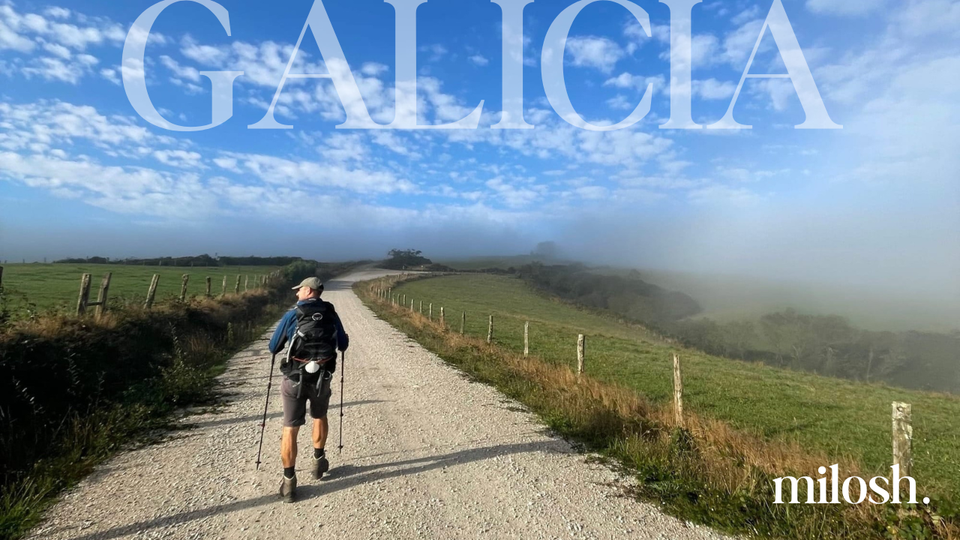
This is the final part of this mini-series, written on the Camino and along the northern coast of Spain. While all of the regions are special, the one that has somehow grown on me the most is the northwestern one. It's a place where the wild Atlantic winds hit your face as soon as you reach a wide-open space, where horses wander high in the misty mountains, and where the songs of the sea carry throughout—Galicia."
Celts by the Atlantic
Galicia is perhaps the most mystical region in Spain. Located in the northwest, it is a land rich in Celtic heritage, where the echoes of ancient traditions still resonate in its music, festivals, and stone circles. This unique cultural blend is evident in Galicia's identity, with the Galician language being nowhere near as complicated as Basque. The best part? Celtic-inspired folk music. You can walk through the villages, hearing people chatting in Galician while the sounds of bagpipes play in the background. It's one of those 'fooled by randomness' moments in life.
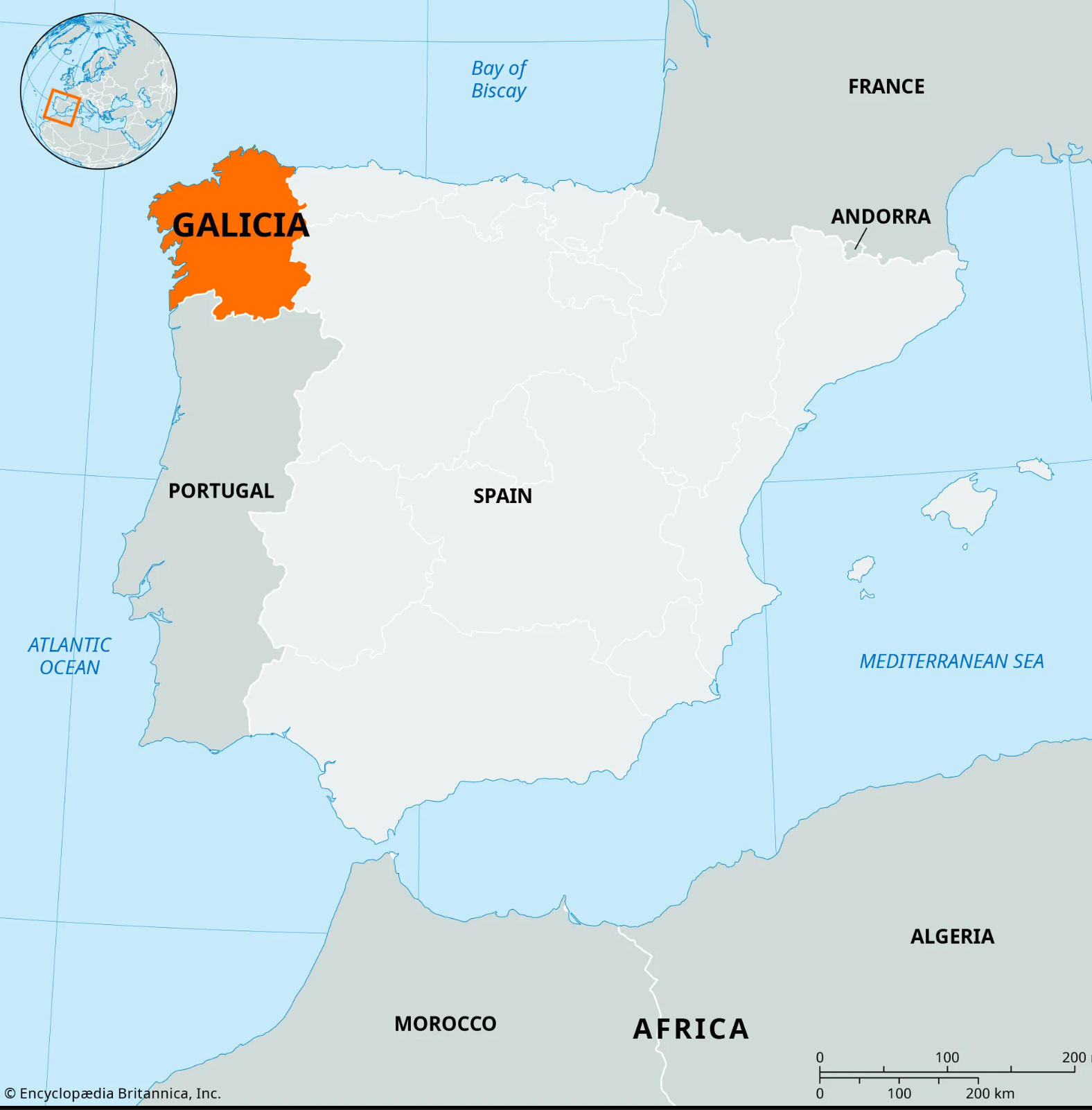
Known for its lush, green landscapes resulting from over 200 rainy days per year, Galicia's verdant hills and valleys owe their striking beauty to the abundant rainfall. The beloved pulpo a feira, Galicia's signature dish of tender octopus seasoned with paprika and olive oil, has its roots in rural fairs, where it became a staple due to its simple preparation and the availability of fresh, high-quality seafood. I would go as far as to say this is one of my all-time favourite meals, one I could eat daily—anywhere in Galicia I would walk to. It pairs perfectly with Albariño, the region's white wine, which owes its delicate and aromatic profile to the cool, damp climate and mineral-rich soils. Is walking the Camino even an achievement if one can be fueled by such delicacies?
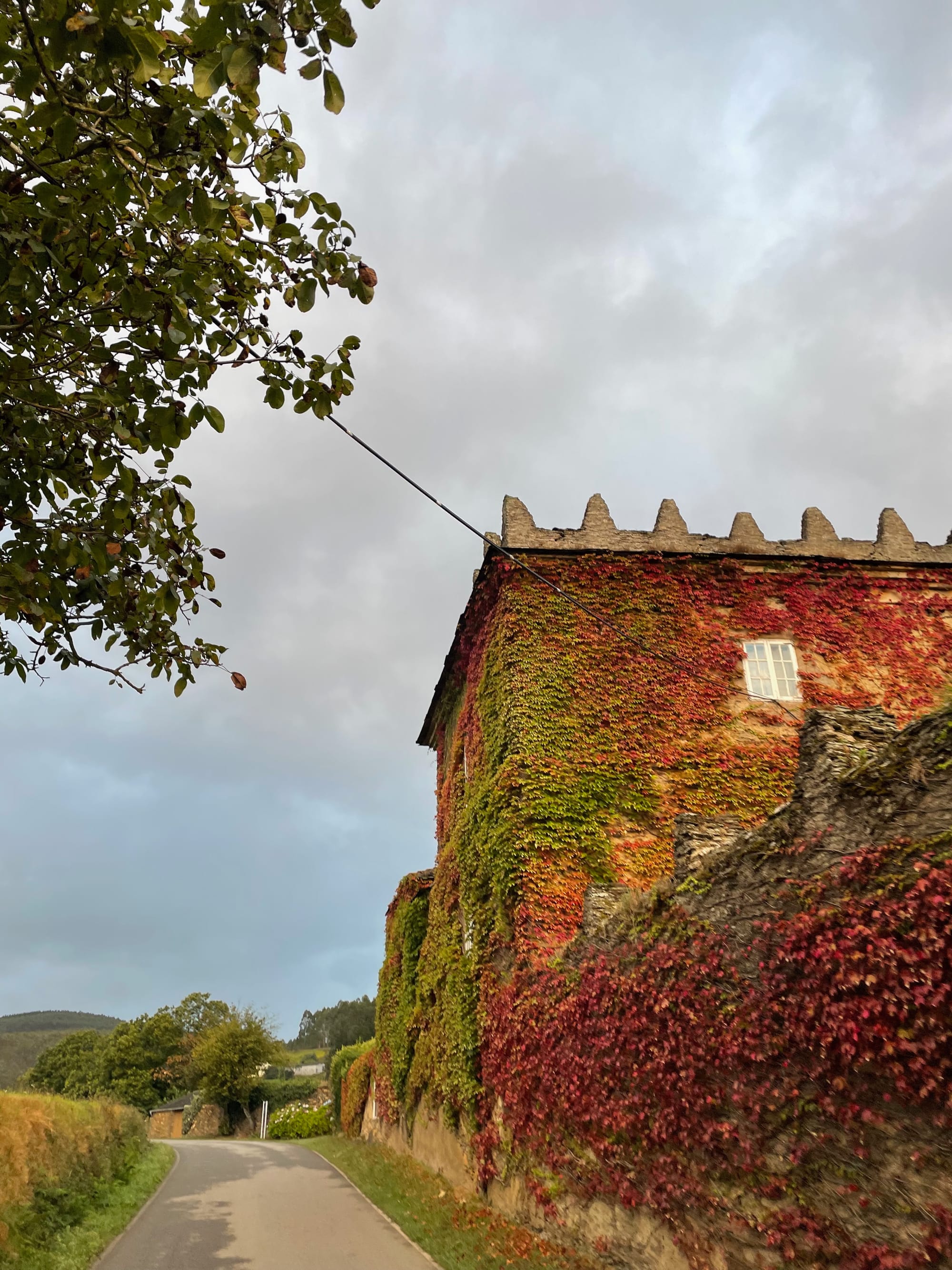
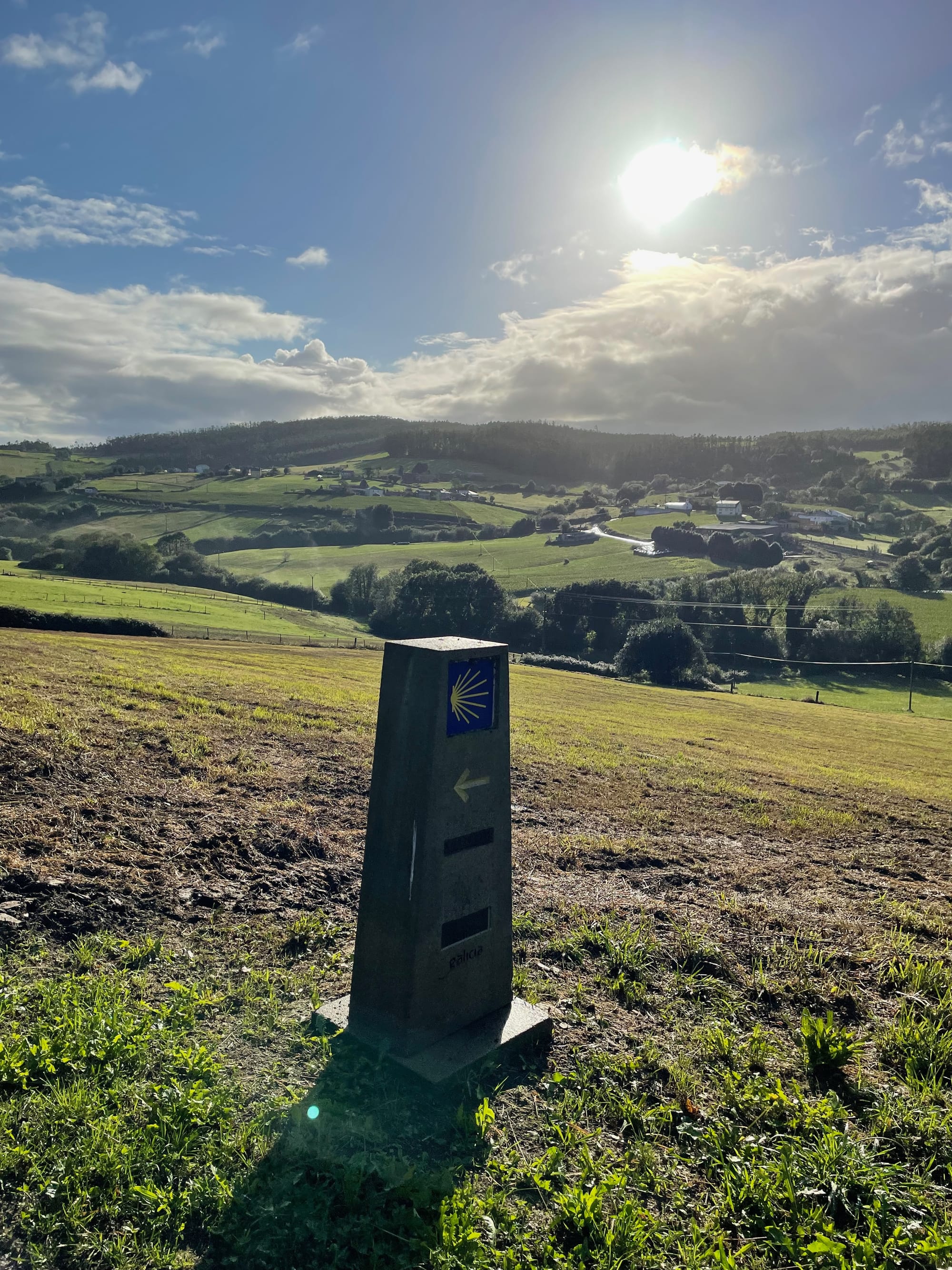
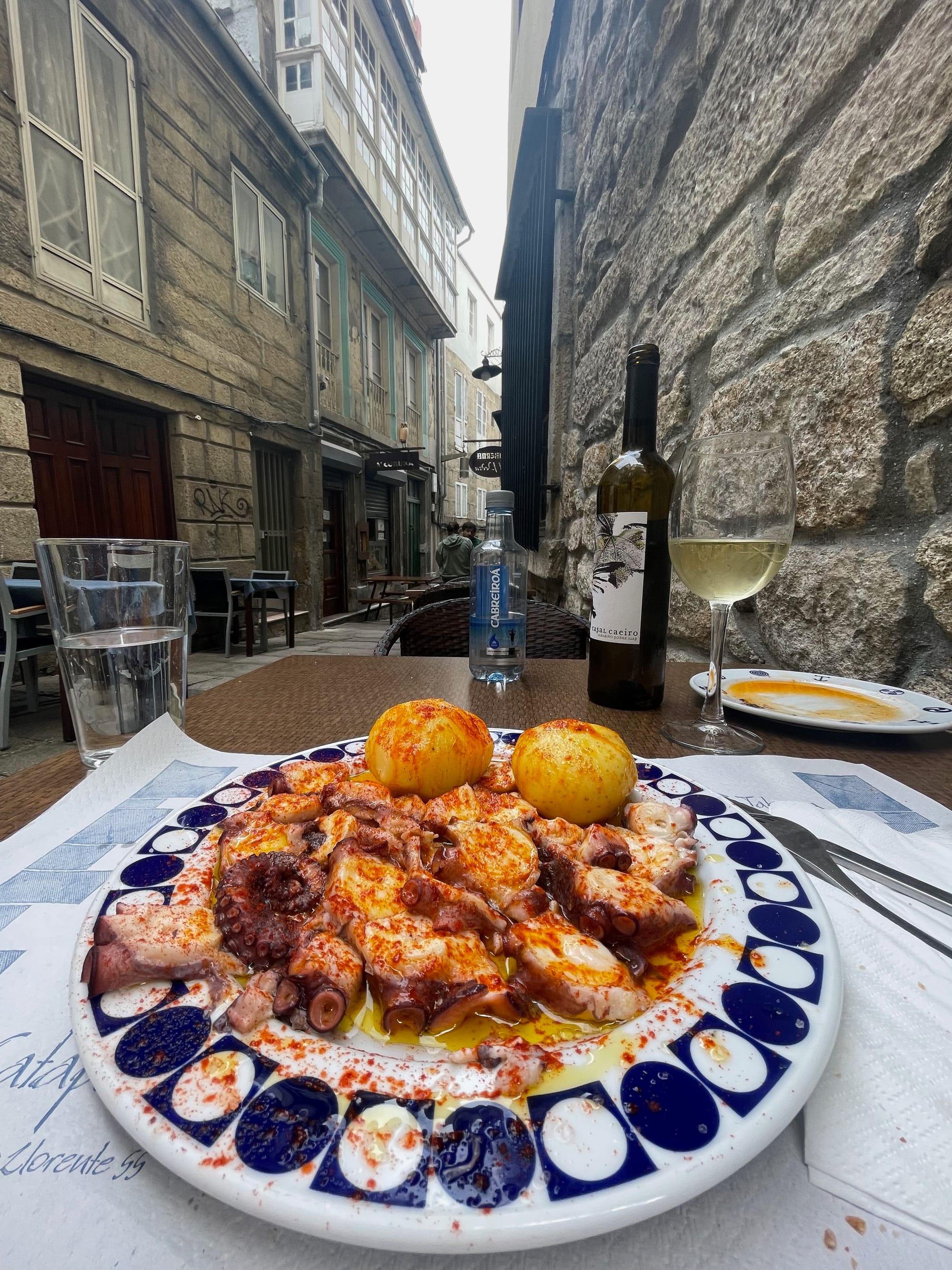
Galician specialities.
Biggest Cliché Ever Turns Out Being True
After spending my last night in Asturias, I felt content. We had just finished drinking wine and playing cards with a group of friends, and I felt grateful. I spent the evening chatting with a guy from Belarus, during a time when hundreds of thousands of people were taking to the streets of Minsk, fighting for their freedom. Talking to him and hearing about his struggles made me realize how precious the things we often take for granted are. For me, the Camino equates to freedom. The days were easy and long—waking up early, packing my bag, turning on the headlamp, and setting off on an adventure every morning. It was something that felt so easy and simple, yet so rewarding. It didn’t matter whether the sun was shining, whether it was raining, or whether I was walking on concrete, gravel, or up a steep mountain hill. It was always the same—a perfect metaphor for life. Sometimes things go our way, and we feel unstoppable; other times, it may seem like the universe is against us. But at the end of the day, the response should always be the same: get up and do what you have to do. Find your way through."
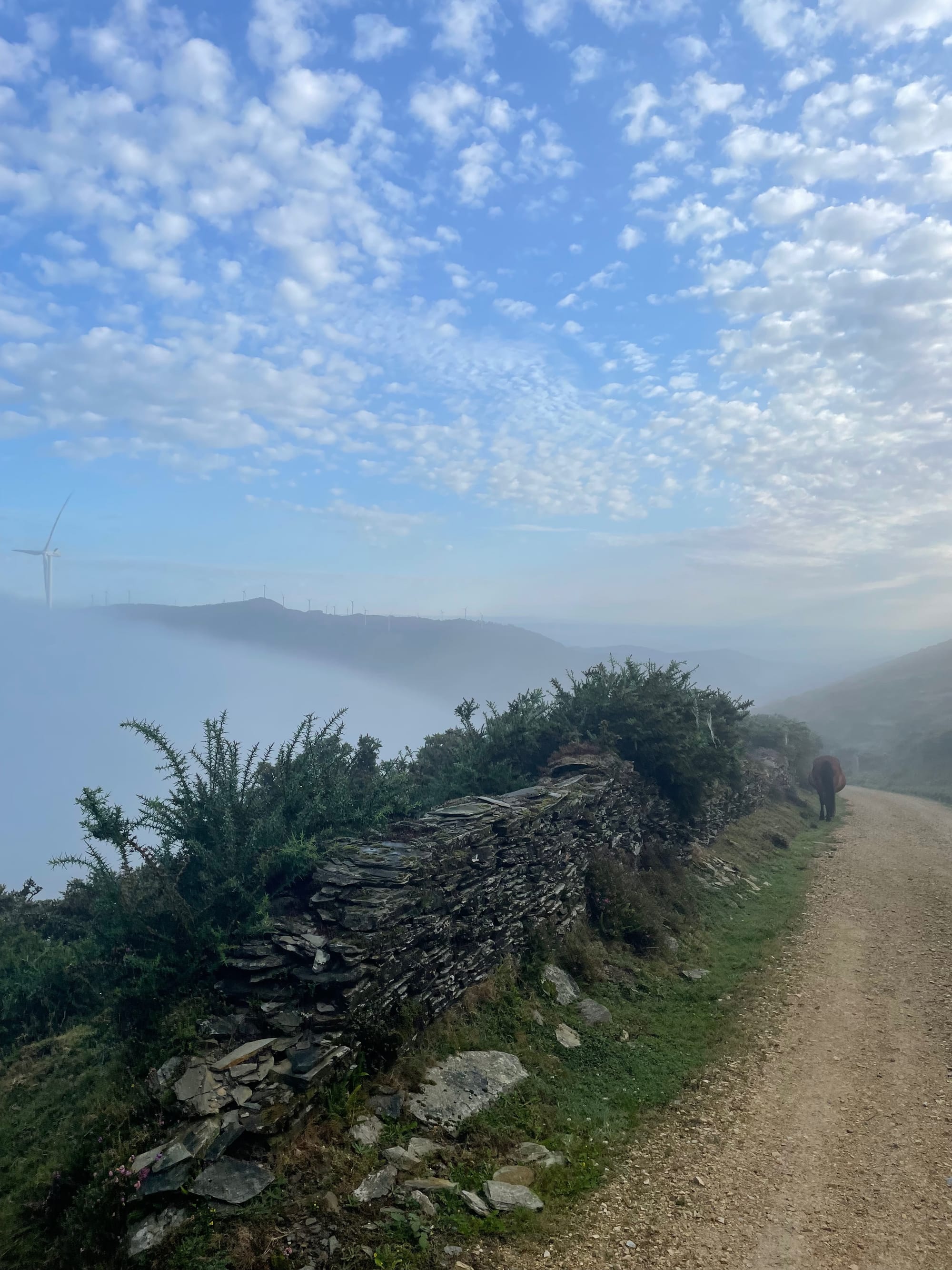
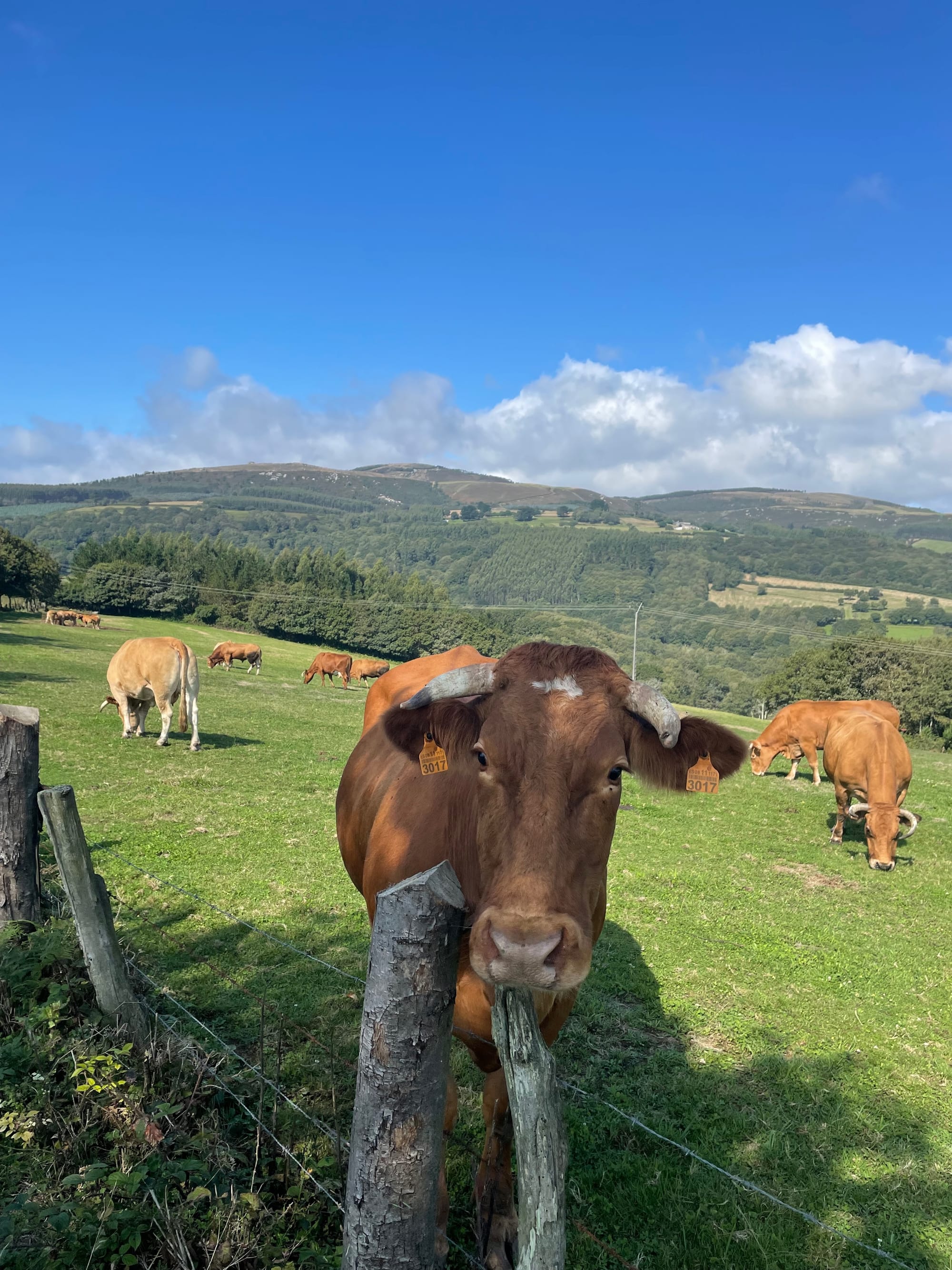
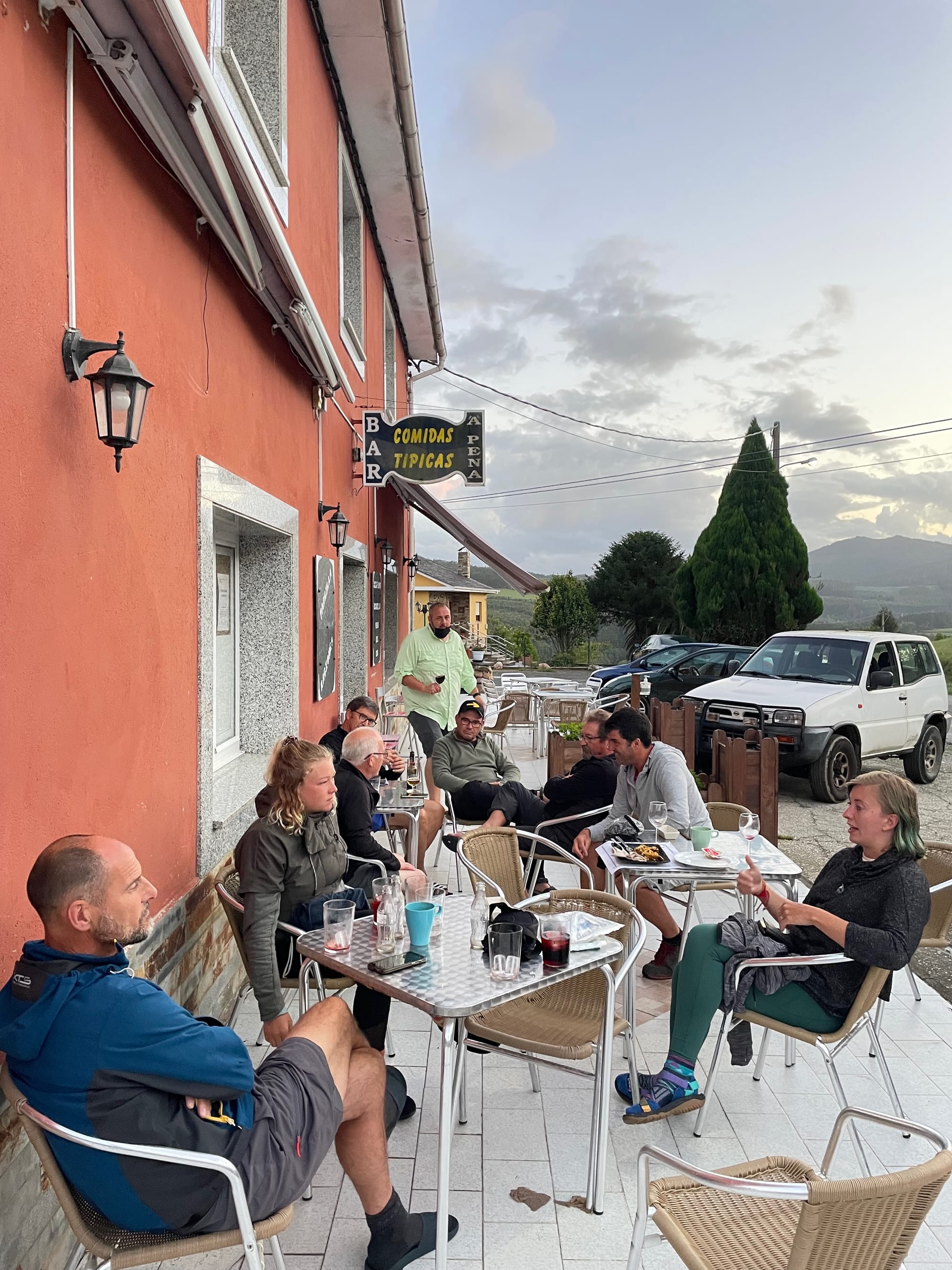
Galician countryside
So there I was, finding my way through the Galician countryside. After making my way through Ribadeo, I was happy to be spending my days higher up in the mountains. The weather would get chilly in the early mornings and evenings, so I was finally able to make use of my layers. Sipping local Estrella Galicia beer and watching Celta play their game with no one but the bartenders around gave me the strange satisfaction of feeling like a local. There’s one day I particularly think back to—probably the steepest hike of the Camino. It was nothing but a few hours of uphill trekking. I locked in, and so did Peter, my Dutch friend. We didn’t speak a word to each other, but we managed to push one another up the hill by matching each other's pace. As we climbed, we were greeted by wild horses and windmills, just like something out of Don Quixote's dream.
I felt so happy suffering up that hill—not because I was excited to reach the top, but because I felt so comfortable and confident in myself after walking for over three weeks. At the beginning of the Camino, I thought I was just going to give it a try and see how I liked it, but by the end, I felt ready for 1,000 more kilometers.
That night, we arrived at O Xistral, one of my favorite albergues on the Camino. It was a Galician-style house, freshly renovated but still full of character. Chatting with friends whom we’d now been on the road with for over a week, we continued playing card games and preparing for the last few days ahead.
With every passing day, it felt like we exchanged fewer and fewer words, yet we understood each other more and more. Everyone had a story. Everyone had a reason for being on this adventure. And as we got closer to the grand finale, all of us were asking ourselves: 'Have I achieved what I wanted?'
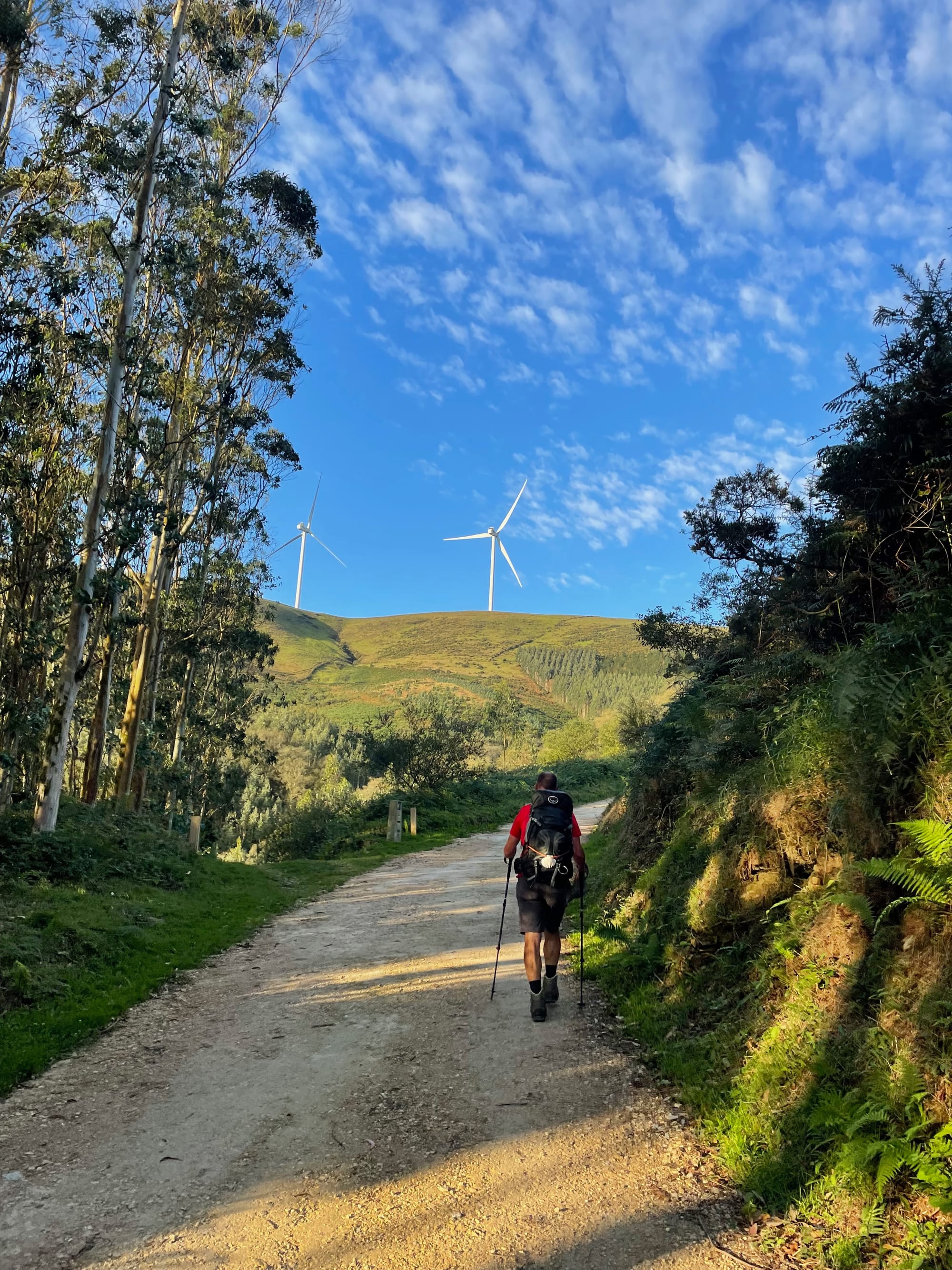
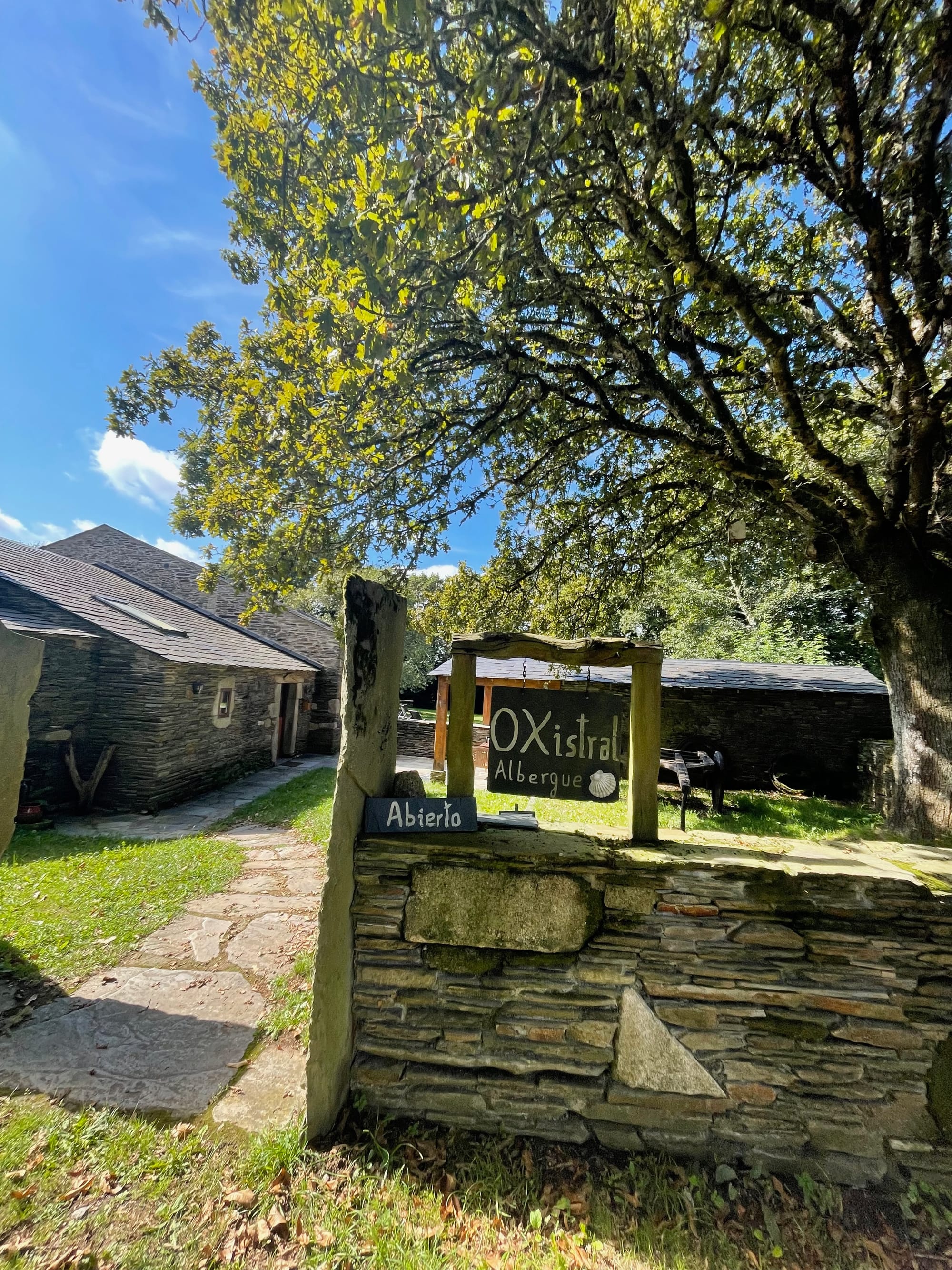
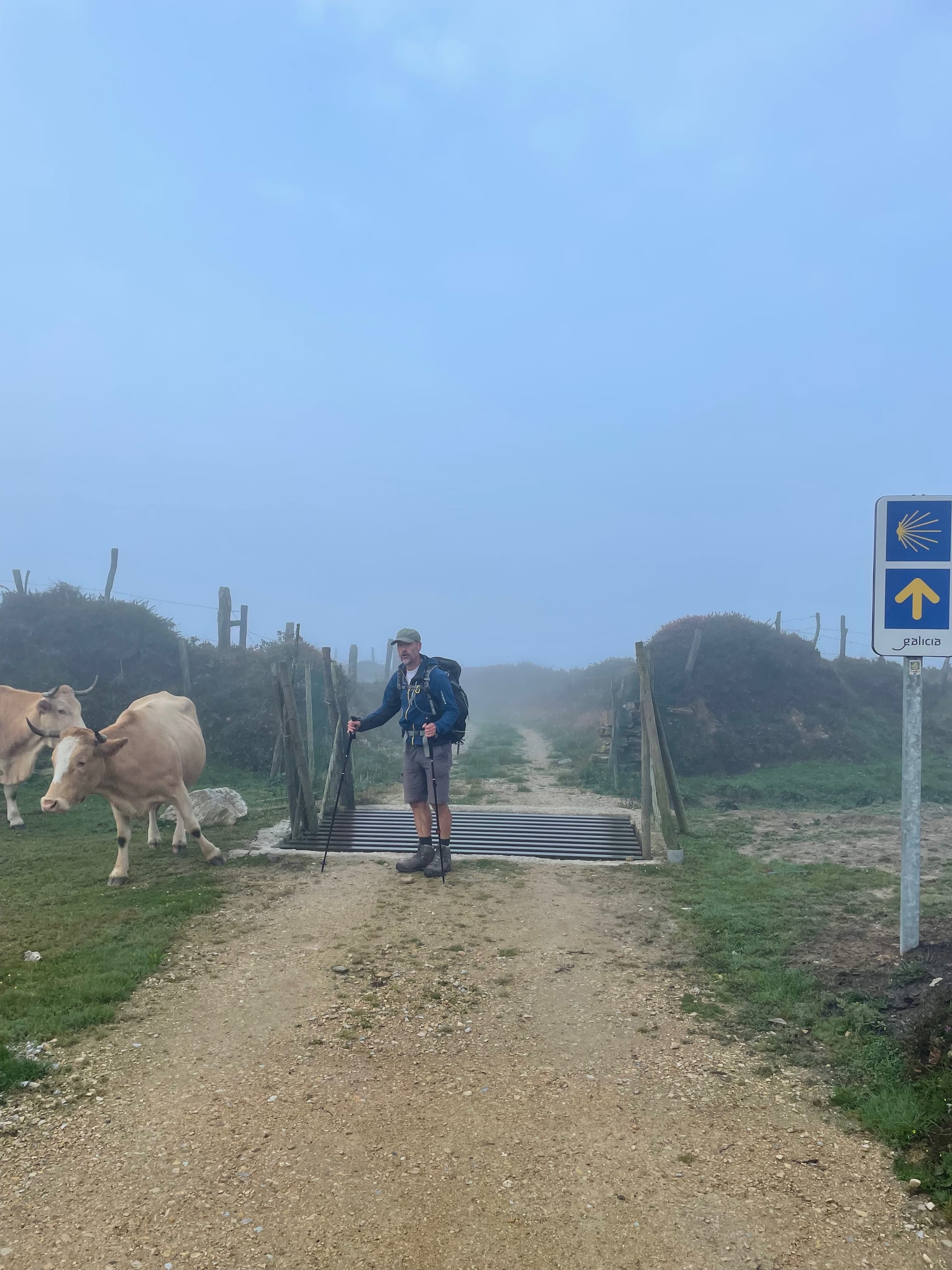
Some of the last hills in Galicia
On the very last day, we had less than 15 kilometers to cover. The trail suddenly turned into a highway, as many tourists joined to complete the final stretch and earn their 'certification' for hiking the Camino de Santiago. I won't mention the nationality of most of these tourists, but your guesses are welcome.
I packed my bag before 7 a.m., left under the moonlight, and couldn’t stop thinking about what the Camino had given me. I had set out hoping to leave behind the struggles of the past years and eager to start a new way of life. I didn’t quite know what that would be, but I knew that hiking—my favourite activity—and Spain—my favourite country—would give me an answer. And they did.
While I expected some sort of relief or a feeling of accomplishment upon arriving in Santiago de Compostela, none of that happened for me. Quite frankly, I felt almost nothing. I sat down in front of the cathedral and waited for my friends. I hugged them all and thanked them for making the past few weeks of this adventure more enjoyable. I was proud of what I had done, but then, more than ever, I realized that the journey truly is the goal.
While some may have thought it was the end, I knew I was just getting started...
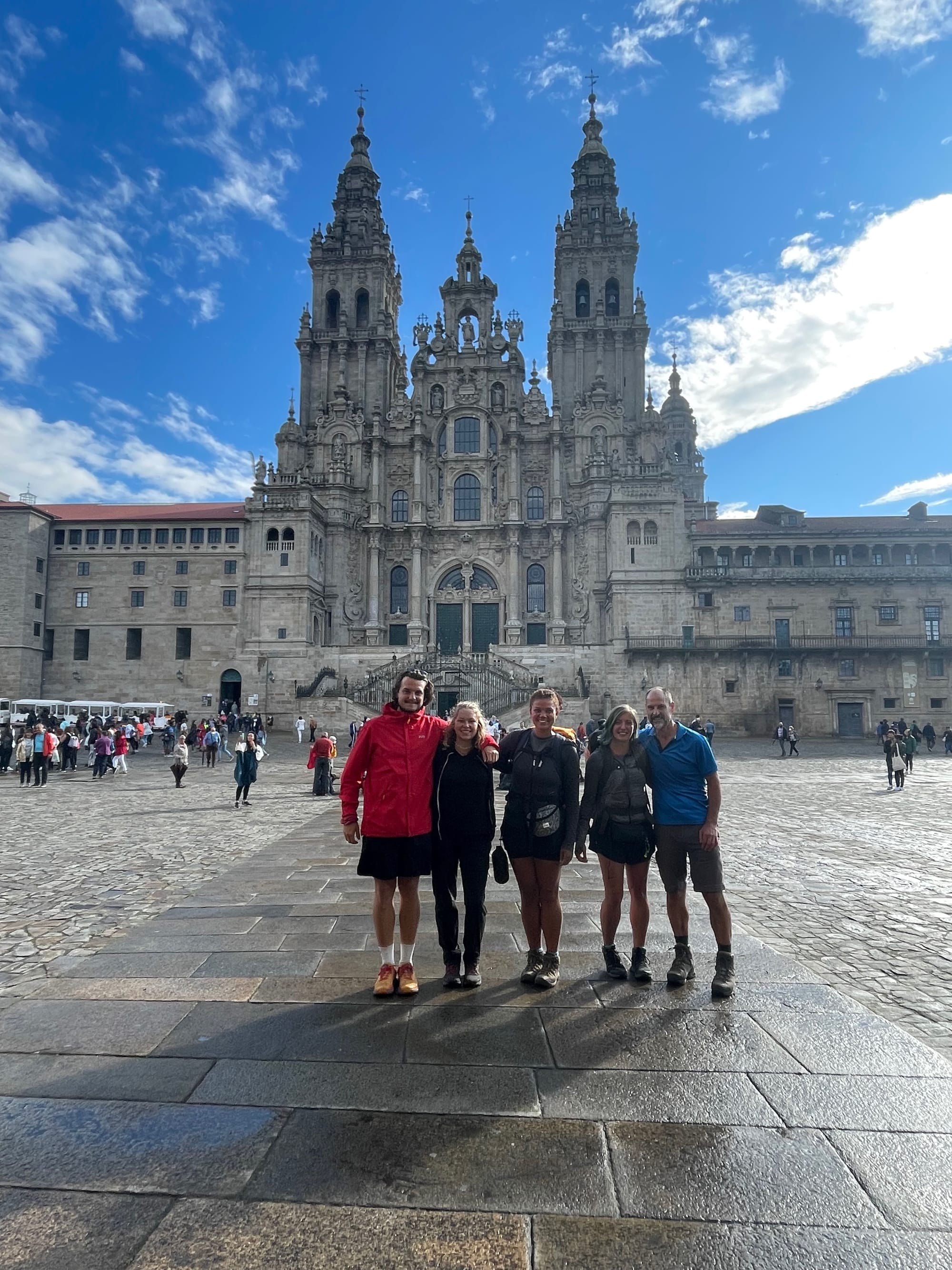
Remote Work & Co-Living Trend
A short note on the remote work landscape in Galicia: Surprisingly, it’s much more developed than in neighbouring regions along Spain’s northern coast. The rise of remote work has brought new life to Galicia, transforming it into a popular destination for digital nomads and remote workers. Popular coliving spaces such as Sende, iSlow, and Ancieu are at the forefront of this transformation, offering modern amenities in settings that embrace both Galicia’s natural beauty and cultural richness.
I had the chance to briefly visit iSlow on one of my other trips to Galicia, and I was blown away by how cosy the house is, even during the challenging Galician winters. If you’re a surfer or a homebody who loves travelling to slower, less crowded places, this is your spot.
Galicia is a digital nomad’s paradise—trust me on this one.
